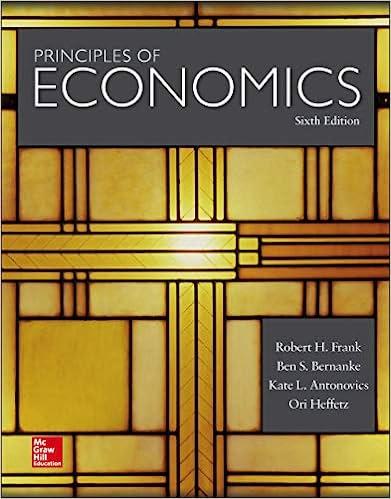Question
The Political and Economic Evolution of Indonesia Indonesia is a vast country. Its 260 million people are spread out over some 17,000 islands that span
The Political and Economic Evolution of Indonesia
Indonesia is a vast country. Its 260 million people are spread out over some 17,000 islands that span an arc 3,200 miles long from Sumatra in the west to Irian Jaya in the east. It is the most populous Muslim nationsome 86 percent of the population count themselves as Muslimsbut also one of the most ethnically diverse. More than 500 languages are spoken in the country, and separatists are active in a number of provinces.
For 30 years, the strong arm of President Suharto held this sprawling nation together. Suharto was a virtual dictator who was backed by the military establishment. Under his rule, the Indonesian economy grew steadily, but there was a cost. Suharto brutally repressed internal dissent. He was also famous for "crony capitalism," using his command of the political system to favor the business enterprises of his supporters and family.In the end, Suharto was overtaken by massive debts that Indonesia had accumulated during the 1990s. In 1997, the Indonesian economy went into a tailspin. The International Monetary Fund stepped in with a $43 billion rescue package. When it was revealed that much of this money found its way into the personal coffers of Suharto and his cronies, people took to the streets in protest, and he was forced to resign.
After Suharto, Indonesia moved rapidly toward a vigorous democracy. In 2004, the country's first directly elected president, Susilo Bambang Yudhoyono, took power. Yudhoyono was elected to a second term in 2009. In 2014, he was succeeded by the current president, Joko Widodo. Freedom House, which tracks the state of political freedom around the world, notes that Indonesia has "free and fair elections," although they criticize the country for restrictions on civil liberties, freedom of movement, and freedom of the press. Freedom House also notes that Indonesia has high levels of public corruption. Transparency International, which ranks countries according to their level of corruption, has given Indonesia a poor score. It ranked Indonesia 88 out of the 168 nations in 2015 with a score of just 36 out of a possible 100.
On the economic front, progress has been somewhat halting. Although Indonesia has consistently grown its economy, growth has been at a lower rate than in other large developing nations such as India and China. Economic liberalism has never really taken hold in Indonesia. Many industries are sheltered from foreign competition by protectionist policies. These policies have their roots in the widespread belief that foreigners have long plundered Indonesia's resources while leaving the country impoverished. In 2014, the list of industries protected from foreign competition was expanded to include onshore oil extraction and e-commerce. To compound matters, the government has frequently imposed price controls and heavily subsidized certain goods, most notably gasoline, all of which distorts the market mechanism.
Moreover, several sectors are still dominated by inefficient state-run enterprises. There are over 140 state-run enterprises in Indonesia accounting for about 20 percent of the county's gross domestic product.
State-owned enterprises are widespread in energy, power production, transportation, aviation, agriculture, banking, and telecommunications.The country also suffers from chronically poor infrastructure, much of which is managed by state-owned enterprises. There are simply not enough power stations, roads, ports, etc. Indonesia has five times the population of the United Kingdom but only half the power generating capacity. Due to poor transportation infrastructure, logistics costs in Indonesia are 50 percent more than in Thailand and twice as much as in Malaysia.
In 2014, Indonesia's new president, Joko Widodo, pledged to liberalize the economy and improve infrastructure. In early 2015, Widodo abolished the state subsidy on gasoline, allowing the market to set prices. The subsidy was costing the government almost $20 billion a year, or 15 percent of total government outlays. Widodo also announced plans to boost public infrastructure, investing in 5 deep-sea and 24 feeder ports, 10 airports, 25 hydroelectric dams, 2,000 kilometers of roads, and 10 industrial parks. These acts were followed by a number of measures designed to deregulate the economy. Import restrictions on some goods were removed, the time required to process investment permits was reduced substantially, and some onerous business regulations were abolished. Widodo has also repeatedly signaled that Indonesia will be more welcoming to foreign investment than hitherto.
Despite these measures, Indonesia still faces significant economic headwinds. One major problem: the economy is overly dependent upon commodities, the prices of which have fallen sharply in the wake of economic slowdown in China. Then there is the persistently high level of corruption, which continues to burden and distort business activity in the country.There is also no move to reduce the number of state-owned enterprises. Many critics feel that for Indonesia to unleash its full potential, it must do more to reduce corruption, privatize inefficient state-owned companies, further deregulate its economy, continue to improve its infrastructure, and do more to attract long-term foreign investors.
QUESTION 1: Using Myanmar as an example, discuss how "crony capitalism" and strict control of dissent impact the development of a political and economic system.
QUESTION 2: After President Suharto's resignation in 1998, the political and economic development of Indonesia emerged from an era of corruption and strict control. How can the changes implemented to date impact the country? What else needs to be done by Indonesia's leaders to continue this trend?
Step by Step Solution
There are 3 Steps involved in it
Step: 1

Get Instant Access to Expert-Tailored Solutions
See step-by-step solutions with expert insights and AI powered tools for academic success
Step: 2

Step: 3

Ace Your Homework with AI
Get the answers you need in no time with our AI-driven, step-by-step assistance
Get Started


